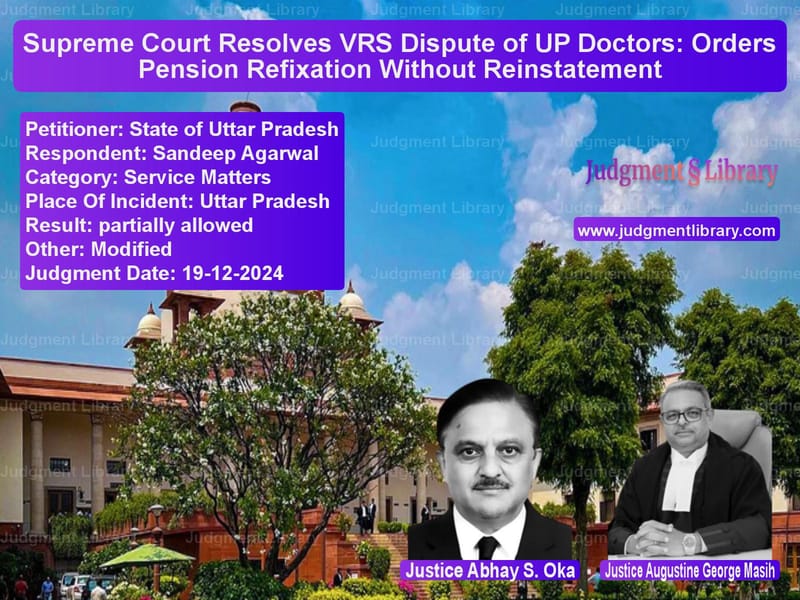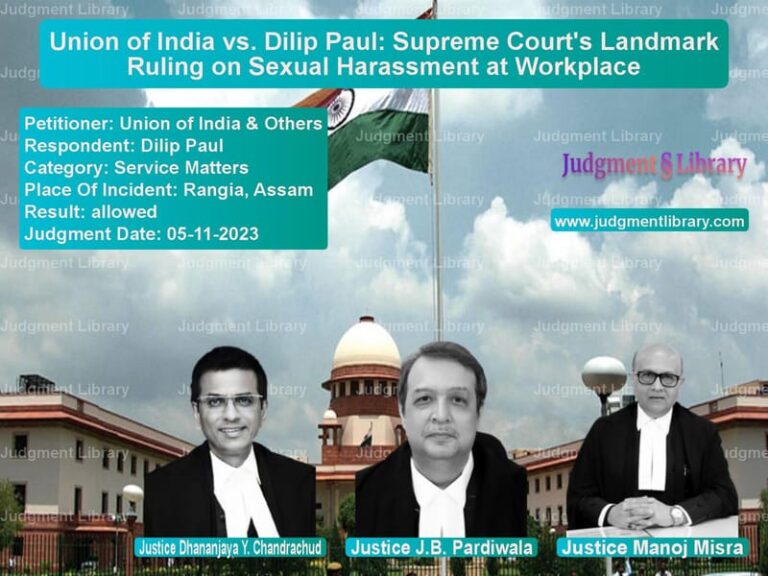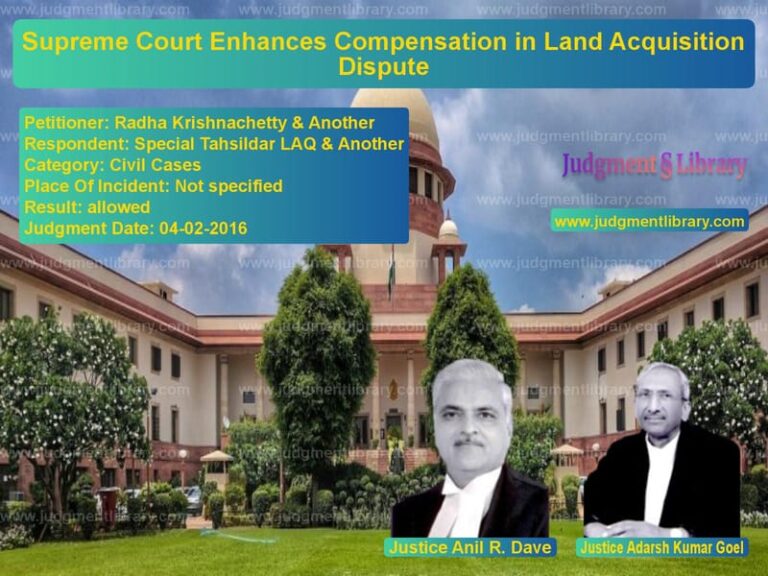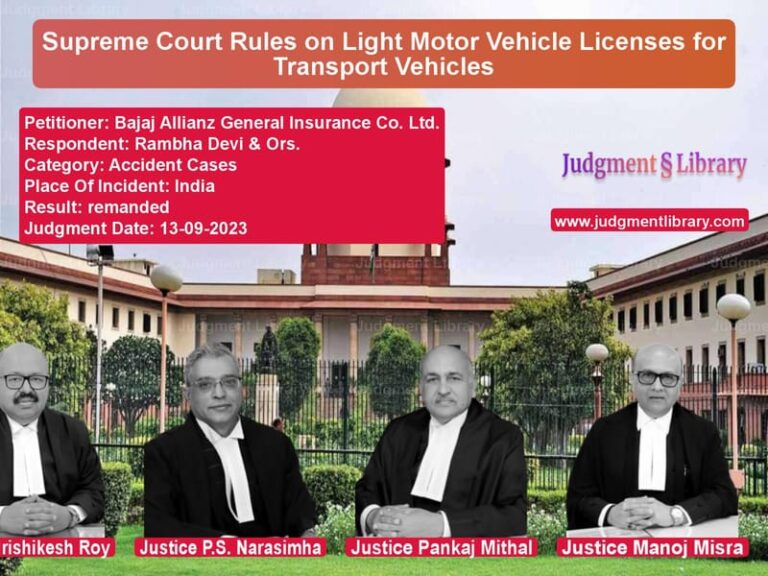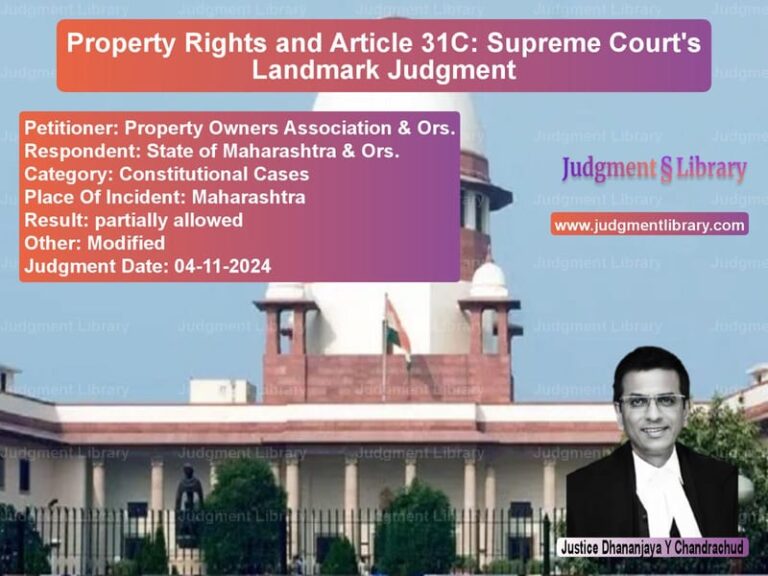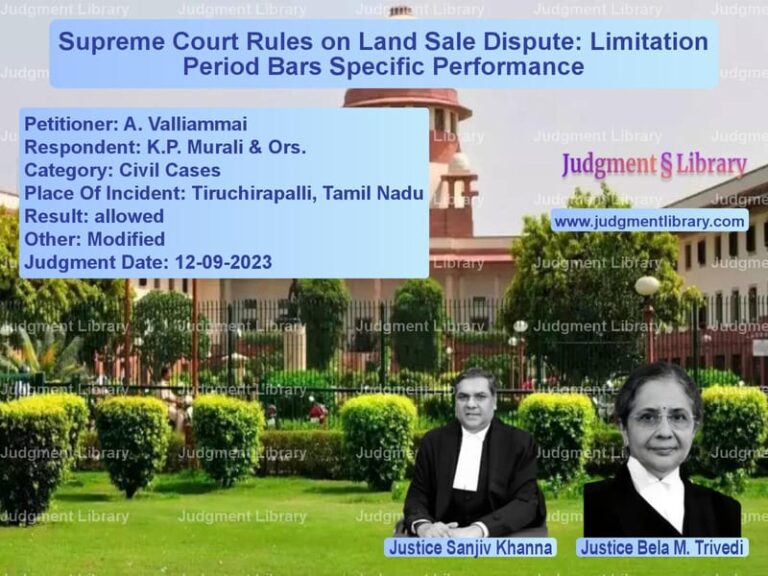Supreme Court Resolves VRS Dispute of UP Doctors: Orders Pension Refixation Without Reinstatement
The Supreme Court of India recently decided in favor of the State of Uttar Pradesh in a long-standing employment dispute involving doctors who had applied for Voluntary Retirement Scheme (VRS) but were later terminated. The Court ruled that while the doctors’ termination was unjustified, reinstatement was not an appropriate remedy. Instead, the Court directed the government to treat the doctors as voluntarily retired from the date of termination and refix their pensions accordingly.
Background of the Case
The case involved multiple doctors who had joined the Uttar Pradesh government service on different dates:
- Dr. Sandeep Agarwal – Joined service on June 30, 1994
- Dr. X (Name Withheld) – Joined service on September 25, 1989
- Dr. Y (Name Withheld) – Joined service on February 21, 1991
Each of these doctors applied for VRS at different times in 2006 and 2008. However, after applying for VRS, they remained absent from duty for extended periods. On May 3, 2010, the Government of Uttar Pradesh issued an order terminating the services of more than 400 doctors, including the respondents, citing the impracticality of holding disciplinary proceedings.
High Court’s Ruling
The affected doctors challenged their termination before the Allahabad High Court, arguing that the state government failed to consider their VRS applications before proceeding with termination. The High Court ruled:
- The government’s termination order was illegal as it failed to comply with Article 311(2)(b) of the Constitution.
- The state did not prove that a disciplinary inquiry was impractical.
- The doctors were entitled to reinstatement with all consequential benefits.
The Uttar Pradesh government then approached the Supreme Court, challenging the High Court’s decision.
Supreme Court’s Examination
The Supreme Court, comprising Justices Abhay S. Oka and Augustine George Masih, reviewed the facts and legal arguments. The key issues examined were:
1. Was the Termination Order Justified?
The Court held that the termination order was improper since the state government had kept the doctors’ VRS applications pending for years without deciding them.
“The applications for VRS were kept pending by the appellants for no reason till the orders of termination were passed.”
However, the Court also noted that the doctors had voluntarily absented themselves instead of pursuing legal remedies when their VRS applications were not decided.
2. Was Reinstatement an Appropriate Remedy?
The Supreme Court ruled that reinstating the doctors after a gap of more than a decade would not be practical.
“Considering the conduct of the respondents of remaining absent from duties for a few years, reinstatement would be inappropriate.”
3. What Was the Best Possible Resolution?
The Court decided that the best resolution was to substitute the termination order with voluntary retirement effective from May 3, 2010. This ensured that the doctors would:
- Not be entitled to reinstatement or back wages.
- Have their pensions refixed as per voluntary retirement rules.
- Start receiving pension benefits from the date of the Supreme Court’s order.
Final Judgment
The Supreme Court ruled:
- The termination orders of May 3, 2010, were set aside.
- The doctors were deemed voluntarily retired from May 3, 2010.
- They would not receive arrears of salary or pension for the period before the Court’s ruling.
- The government was directed to refix their pension within three months.
Implications of the Judgment
This ruling has several important implications:
1. Clearer Rules for VRS Applications
The judgment highlights the need for timely decisions on VRS applications to avoid legal complications.
2. Government Employees Cannot Claim Reinstatement After Long Absence
The ruling sets a precedent that absentee employees cannot expect reinstatement even if their termination is found unlawful.
3. Pension Rights Protected
By granting voluntary retirement benefits, the Supreme Court ensured that employees were not left without financial support.
Conclusion
The Supreme Court’s ruling in State of U.P. vs. Sandeep Agarwal strikes a balance between holding employees accountable for absenteeism and ensuring fair treatment in employment disputes. By replacing termination with voluntary retirement, the Court provided a legally sound and equitable resolution that benefits both the employees and the state government.
Petitioner Name: State of Uttar Pradesh.Respondent Name: Sandeep Agarwal.Judgment By: Justice Abhay S. Oka, Justice Augustine George Masih.Place Of Incident: Uttar Pradesh.Judgment Date: 19-12-2024.
Don’t miss out on the full details! Download the complete judgment in PDF format below and gain valuable insights instantly!
Download Judgment: state-of-uttar-prade-vs-sandeep-agarwal-supreme-court-of-india-judgment-dated-19-12-2024.pdf
Directly Download Judgment: Directly download this Judgment
See all petitions in Employment Disputes
See all petitions in Pension and Gratuity
See all petitions in Public Sector Employees
See all petitions in Judgment by Abhay S. Oka
See all petitions in Judgment by Augustine George Masih
See all petitions in partially allowed
See all petitions in Modified
See all petitions in supreme court of India judgments December 2024
See all petitions in 2024 judgments
See all posts in Service Matters Category
See all allowed petitions in Service Matters Category
See all Dismissed petitions in Service Matters Category
See all partially allowed petitions in Service Matters Category

